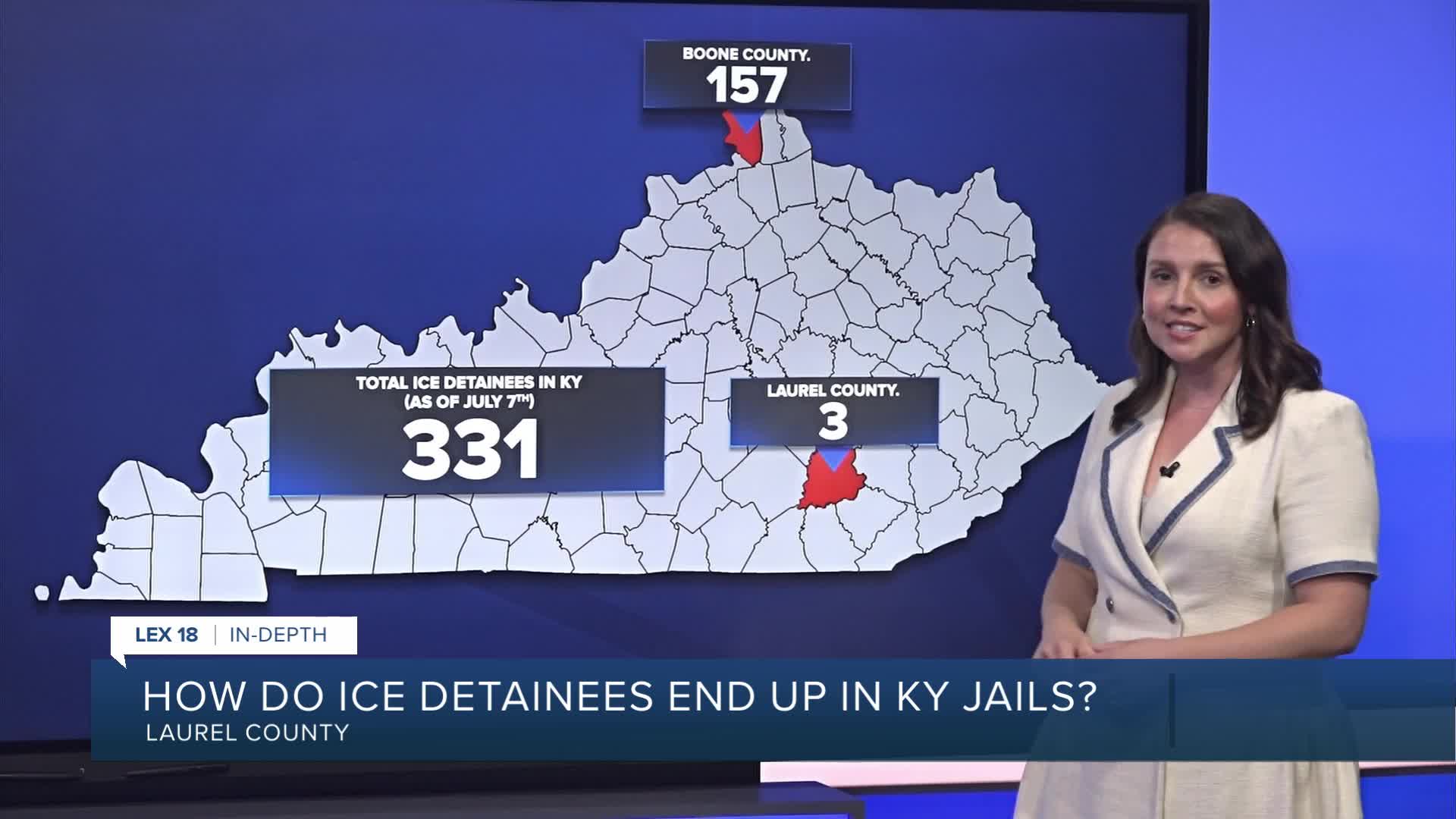(LEX 18) — The Laurel County Correctional Center is just one facility in Kentucky with a contract allowing them to house immigration detainees. To learn more about why this is happening and what the process looks like, LEX 18 asked jailer Jamie Mosley for a tour.
"The ICE detainees is something that's recently happened, and we've done that on a limited basis," Mosley told LEX 18.
Under a contract with the United States Marshals Service, the Laurel County Jail can house ICE detainees for up to three days before transporting them to a different facility.
"We've not seen a very heavy concentration of local ICE detainees," said Mosley. "Most are from outlying counties or areas."
Mosley touted the jail's staff and equipment as reasons why they're able to house federal inmates, including those arrested on immigration charges. He says undocumented immigrants are not treated any differently than anyone else who is booked into the jail.
"We have a very recognized strong transport division, where we will transport them on to a longer-term housing facility, and sometimes that's directly to an airlift in Chicago or Louisiana, where they'll be flown out to another location," he explained.
It's not just the Laurel County jail doing this. LEX 18 pulled data from a July 7 ICE Detention Statistics Report.
LEX 18 found nine facilities listed on the report with federal contracts, along with the number of ICE detainees at that time.
- Boone County Jail: 157
- Campbell County Detention Center: 22
- Grayson County Jail: 46
- Hopkins County Jail: 16
- Kenton County Jail: 7
- Laurel County Jail: 3
- Oldham County Jail: 38
- Bourbon County Detention Center: N/A
- Fayette County Detention Center: 42
Other local law enforcement agencies have a contract with the federal government under the 287(g) program. This allows the agencies to perform specific immigration functions under the direction of ICE.
There are three models within the 287(g) program, explained on ICE's website:
- The Jail Enforcement Model is designed to identify and process removable aliens — with criminal or pending criminal charges — who are arrested by state or local law enforcement agencies.
- The Task Force Model serves as a force multiplier for law enforcement agencies to enforce limited immigration authority with ICE oversight during their routine police duties.
- The Warrant Service Officer program allows ICE to train, certify, and authorize state and local law enforcement officers to serve and execute administrative warrants on aliens in their agency’s jail.
According to an online database, nearly a dozen law enforcement agencies in Kentucky have entered into these 287(g) agreements, including the Scott County Sheriff's Office.
When it comes to local correctional centers, the federal government pays a per diem for every person incarcerated in the facility, creating a revenue stream for jails.
"It can be anywhere from $40 to upwards of $80, $90," said Mosley. "And a lot of that is just based on the level of service you're able to provide from a medical perspective, from a transport perspective."
He said housing ICE detainees, along with other federal inmates, bring in revenue that has allowed the facility to pay for itself, saving taxpayer dollars and providing employees a competitive starting wage of $19 an hour.
But these types of revenue streams have drawn criticism from some criminal justice experts, including a professor at Eastern Kentucky University.
During an interview with LEX 18 in June, Judah Schept expressed his concerns.
"I think when those start coming on the backs of often other poor people or people who are marginalized, I think we have to really examine the kinds of arrangements that create that kind of perverse incentive structure," Schept said.
Mosley doesn't see it that way, even as the federal government ramps up efforts to deport undocumented immigrants.
"We don't have the ability to earmark who's getting arrested and who's not," he said. "We're simply willing to provide that service, and we're getting paid for that service."
While the immigration debate rages nationwide, Mosley said he remains focused on what's happening inside the walls of the local jail.
"We just try to make sure the part we're responsible for, we're doing the best job we can," Mosley said.





